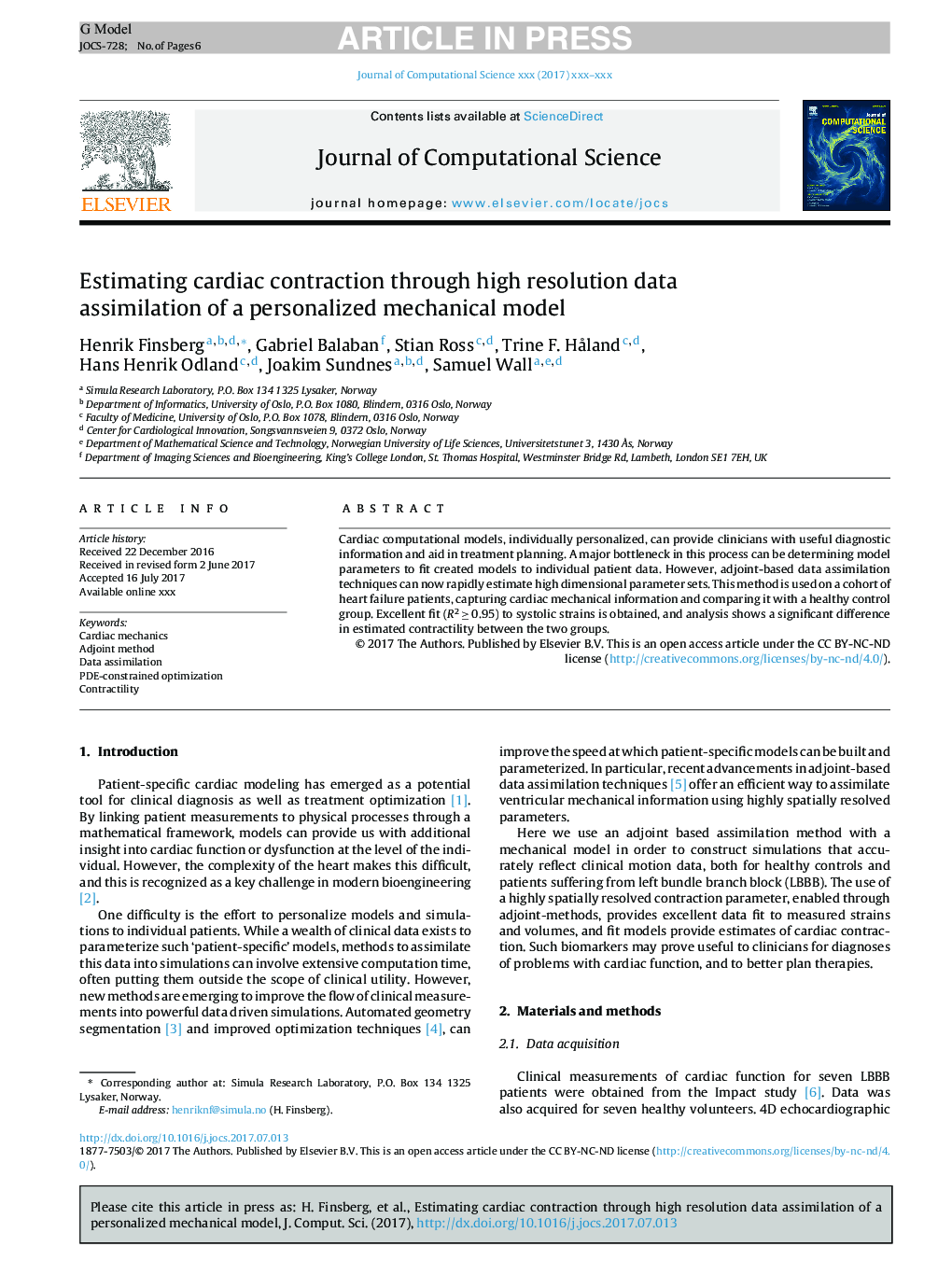| Article ID | Journal | Published Year | Pages | File Type |
|---|---|---|---|---|
| 6874426 | Journal of Computational Science | 2018 | 6 Pages |
Abstract
Cardiac computational models, individually personalized, can provide clinicians with useful diagnostic information and aid in treatment planning. A major bottleneck in this process can be determining model parameters to fit created models to individual patient data. However, adjoint-based data assimilation techniques can now rapidly estimate high dimensional parameter sets. This method is used on a cohort of heart failure patients, capturing cardiac mechanical information and comparing it with a healthy control group. Excellent fit (R2 â¥Â 0.95) to systolic strains is obtained, and analysis shows a significant difference in estimated contractility between the two groups.
Related Topics
Physical Sciences and Engineering
Computer Science
Computational Theory and Mathematics
Authors
Henrik Finsberg, Gabriel Balaban, Stian Ross, Trine F. HÃ¥land, Hans Henrik Odland, Joakim Sundnes, Samuel Wall,
